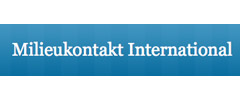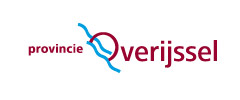CSW58 Side Event: 'Lessons from the Fukushima nuclear Accident'
Side Event during Commission on the Status of Women, co-hosted by WECF, sought to explore how best to protect the environment and health of women and girls from radiation exposure
28.03.2014 |United Nations Non-Governmental Liaison Service (UN-NGLS)

The event was co-hosted by Human Rights Now, Physicians for Social Responsibility, andWomen in Europe for a Common Future. It sought to explore how best to protect the environment and health of women and girls from radiation exposure, and the importance of implementing lessons learned from TEPCO’s Fukushima Daiichi Nuclear Power Plant Disaster, in a discussion on global health and environment as part of the post-2015 development agenda.
Kazuko Ito, Secretary-General of Human Rights Now, spoke of the current situation in Japan three years after the disaster, noting that a vast amount of radioactive materials were released, estimated to be over 168 times of that released by the atomic bomb in Hiroshima. This has created a serious risk to the health of the population, in particular expecting mothers, infants, children and youth. The Fukushima nuclear accident teaches us that nuclear energy is not sustainable, and that such a disaster cannot respect the environment or the right to health of the most vulnerable, Ms. Ito emphasized.
Sascha Gabizon, Executive Director of WECF explained that WECF works with communities to address the negative impacts of unsustainable energy. She shared evidence of health impacts from nuclear industry and uranium mining activities.
WECF recently published a report on the effect of radiation on reproductive health, which discusses that after the Chernobyl nuclear accident, a lower fertility rate was observed in affected areas, while the number of stillbirths and birth defects increased dramatically.
“It is now recognized that not only children, but also women, have a greater health risk from radioactive contamination then men,” Ms. Gabizon continued. She pointed to a 2006 US National Academy of Sciences report on Biological Effects of Ionizing Radiation (BEIR VII), which found that harm to women is 50% higher than harm to men from radiation doses over a lifetime. “Radiation sensitivity depends on age and gender, and is especially high for the unborn child and female organs,” Ms. Gabizon explained. “The higher sensitivity of women is a result of, among others, hormones and cell growth in certain tissue, for example in breasts.”
DOWNLOAD THE FULL ARTICLE HERE AS A PDF or click on the UNGLS link
Related News
Meet the Winners of the Gender Just Climate Solutions Award at COP24
On the 70th anniversary of the Universal Declaration of Human Rights, we awarded Gender Just Climate Solutions Winners at the climate negotiations in Katowice, Poland
11.12.2018
Invitation: Gender Just Climate Solutions Award 2018
10 December, COP24 Katowice
04.12.2018
Getting to the Future We Want
4-7 November, Brussels: European Environmental Bureau’s (EEB) Annual Conference
12.11.2018
GoodFood4All
WECF and partners all over Europe start GoodFood4All Campaign
06.11.2018
#Ruralwomen: join our Women2030 campaign!
15.10.2018






































